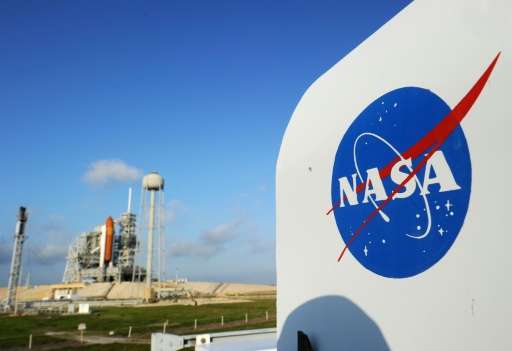NASA on the hunt for space poop geniuses

When you've got to go, but you're out there in space, zipped up in a spacesuit, with no toilet in sight and a crew of other astronauts around, what do you do?
NASA has launched a contest for inventors to solve this uncomfortable issue, and promises to award $30,000 to the best "space poop" solutions.
Inventors have until December 20 to submit designs for a personalized waste-wicking system that will handle everything, hands-free, for a period of up to six days.
"The old standby solution consisted of diapers," said the description of contest details at www.herox.com/SpacePoop.
"However, the diaper is only a very temporary solution, and doesn't provide a healthy/protective option longer than one day."
Sometimes, astronauts have to wait even longer. The two men and one woman who packed themselves into a Russian Soyuz space capsule last week had to wait two full days between launching from Kazakhstan and arriving at the International Space Station.
The Soyuz is equipped with a portable toilet, which looks like an air-powered pee jug.
On future missions to deep space destinations like an asteroid or Mars, NASA suspects it could take up to 144 hours, or six days, to get to a proper toilet.
In emergency situations, astronauts may need to zip themselves into a fully pressurized, bulky orange spacesuit, complete with helmet and gloves.
"While sealed, it is impossible for an astronaut to access their own body, even to scratch their nose," NASA said.
That's where the inventors come in. Astronauts need some way to clear away urine, fecal matter and menstrual blood efficiently, or they risk infection.
The problem is that in weightlessness, fluids can blob up and stick to surfaces, while solids float in the air.
"You don't want any of these solids and fluids stuck to your body for six days," NASA said, recalling how easy babies can get diaper rash.
Currently, while at the International Space Station, astronauts use a toilet contraption that includes a vacuum and a tube to help evacuate fecal matter.
To urinate, they use a funnel attached to a hose that can be adapted for a sitting or standing position, and uses air to move urine away.
NASA vowed to award up to three $30,000 prizes for the most promising in-suit waste management systems.
The goal is to test them within a year and fully implement them within three years.
NASA says the first human missions to Mars could take place by the 2030s.
© 2016 AFP


















